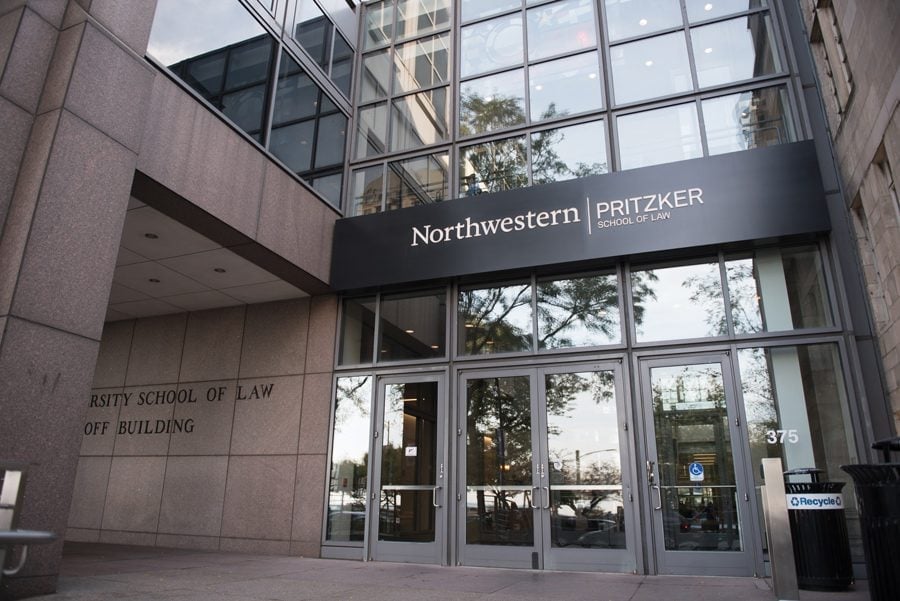On Wednesday, Weinberg sophomore Maraika Robinson will take an exam and hand in a 15-page paper for her psychology class — even though both are prohibited during the Weinberg College of Arts and Sciences Reading Period.
She said her professor was aware of the conflict.
“Someone on the second day of class said, ‘Didn’t you know that this is during Reading Week?’” Robinson recalled. “She kind of said, ‘Yeah,’ and blew it off.”
Mary Finn, associate dean for undergraduate academic affairs, said the faculty voted Reading Period into place in the 1970s. The period is supposed to allow students taking Weinberg classes to have a chance to prepare papers and study for exams without any looming due dates, she said.
Multiple students said their professors had required tests or projects to be completed during the reading period either this quarter or in the fall.
Finn said she knows it is not entirely uncommon for professors to assign reading week deadlines but that, on a policy level, it is not allowed.
“It’s a hard-and-fast rule that you can’t have tests or new work due during Reading Period if you are in Weinberg,” she said.
Robinson said she did not mind having this one early deadline because it kept her from procrastinating, but usually she dislikes having work due during reading week. She noted there was one student in her class who had to get an extension on the exam because he would be away during the Reading Period.
“I am a huge proponent of reading week,” Robinson said. “Normally, I think I would be really unhappy that I had stuff due during (time) because I normally spend reading week preparing for my other classes.”
Finn said if she hears of any Reading Period violations, she works with the department chair to resolve the situation. She said it usually occurs because there was a misunderstanding by a new faculty member or because a professor was trying to accommodate a student’s schedule.
Some professors offer an earlier exam during Reading Period for students who want to leave campus sooner during finals week, Finn said. However, this is against the Weinberg teaching guidelines.
“Faculty members would have to create a whole different exam,” she said. “It creates a great deal of unfairness, and it does threaten academic integrity.”
Weinberg sophomore Evie Atwater said her history professor is allowing students to take the test on Wednesday of Reading Period instead of their assigned time slot Friday of finals week. She said her professor offered it as an option for students without being prompted.
“It’s nice that he did,” Atwater said. “It sucks to have to stay all the way through.”
Finn stressed that when two different versions of the final are given, it is hard to make them exactly comparable and that if the same final is given twice it is not fair to any of the students.
She said she often does not hear about any violations for a number of reasons.
“One of the problems is that they don’t complain because it can be advantageous to students, but it creates inequities potentially,” Finn said. “That’s what I’m concerned about.”
Atwater said her professor told the class the two tests would be the same level of difficulty.
“I know the TAs and the professor are very meticulous and would check and make sure the averages are the same,” she said.
Political science Prof. Andrew Roberts, director of undergraduate studies for the department, said he tries not to move any tests or assignments into Reading Period because he understands its importance. Still, he said he understands students do not like staying on campus when the final falls on the last day of finals week.
“I did try to preserve that sacred time,” he said. “Students seem positive that they would rather do something reading week than stay until Friday afternoon.”
Roberts said it is more difficult to make two separate versions of the test but added he is able to make them comparable. In general, Roberts said he feels his colleagues do try to follow the Reading Period guidelines.
“I think people try to stick to the rule unless there are some special circumstances,” he said.
There is a mechanism in the Weinberg teaching guidelines that would allow a test to be moved, Finn said, but to her knowledge, she has never seen it used in her time here. She said if the professor allows it, the entire class could vote unanimously and anonymously to move the test to a specified time but noted it is difficult to coordinate a test around the schedules of everyone in the class.
Finn said she understands that professors want to be kind to their students, but the Reading Period policies are necessary to ensure fair evaluations.
“The integrity of the exam system on behalf of our students is the most important thing,” she said.












